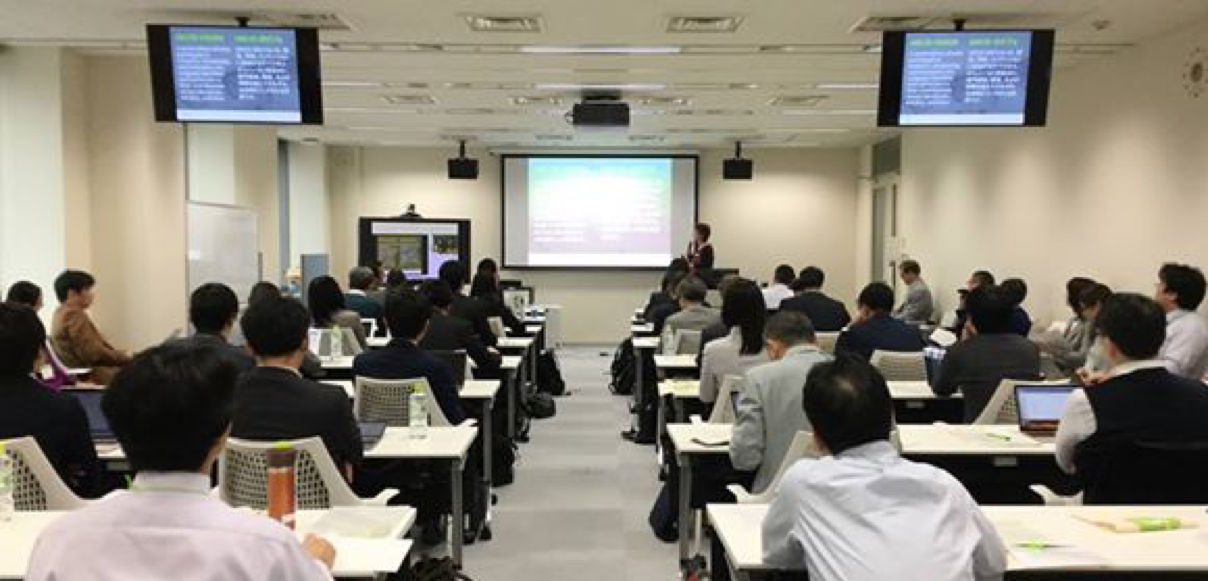[日本語版:日本のORCID:屋根の葺き替え工事]
It was around this time last year that I reported the University of Tsukuba had joined as the 10th ORCID member in Japan. Japan has since added seven more members, but many organizations are still either trying to make the case for ORCID internally or secure budget and resources needed for to implement ORCID. You may wonder why there is such struggle in the country like Japan, where resources devoted to R&D are relatively high. Below are the top three reasons I hear from Japanese organizations as to why they have not yet joined in the ORCID community.
1. Existing infrastructure
In countries where researcher name disambiguation is imperative, it is more likely that a domestic researcher directory is already in place and often intertwined with the government research funding workflow, publications, and databases provided in their local language, or research information systems at institutions. The more self-contained the existing infrastructure is, the harder it becomes for ORCID because many see our core functions being already in place at the country level.
2. Availability of ORCID-enabled applications
ORCID-enabled systems have helped us rapidly expand our membership globally by lowering the technical barriers for organizations which may not have the resources to develop their own applications. Organizations using a custom-built system, or solutions developed by a local vendor, must expend extra time and costs on top of the ORCID membership fees. Local vendor solutions comply well with the domestic infrastructure, but they are unlikely to engage with ORCID unless enough of their existing customer base demands it.
3. Resources for ORCID adoption
The way ORCID works adds complexity for resource allocations. Technical staff needed for ORCID integrations, budget for the membership fees, and researcher communication and support functions may all come from different departments. They somehow need to work together, with or without clearly defined roles in their job descriptions.
These challenges are commonly found not only in Japan but also in other non-English speaking countries. The recent ORCID Japan Member Meeting demonstrated how a country can approach these challenges through collaborative efforts.
- Early adopters such as National Institute for Materials Science and Tokyo Institute of Technology shared the challenges they encountered during the integration process and how they were overcome.
- Atlas, who in 2013 became the first Japanese system provider ORCID member, has recently launched an interim integration solution for new ORCID members such as Kyoto University and Sokendai to deploy while the members work on more full-scale infrastructure.
- Organizations that are not yet ORCID members are also participating in the community discussion. At Niigata University, three departments put their minds together to clarify goals and benefits for ORCID adoptions in various internal workflows. Japan Synchrotron Radiation Research Institute is using the ORCID Sandbox to build a pilot workflow to demonstrate how they can effectively identify their research facility users, and how their research products can be automatically retrieved by authenticating ORCID upfront during the application process.
- Japan Epidemiological Association, the first Japanese society to require authors to provide an ORCID during manuscript submission, reported the limitation of the Public API and the need to become a member to contribute more.
- National systems such as KAKEN (operated by National Institute of Informatics) and researchmap (operated by Japan Science and Technology Agency) are starting to integrate ORCID as value-add to their services to make it easier for Japanese researchers to easily maintain their records and raise more international visibility
The highlight of the meeting was the open discussion facilitated by Dr. Masao Mori, who urged all participants to share ideas for making tangible steps toward an ORCID consortium in Japan. Many attendees responded actively to his call, sharing views and opinions on the cost model, funding sources, staffing, and community advocacy required for a sustainable, inclusive approach. It is expected that some attendees from this meeting, possibly with others from the community, will soon form a steering committee to work on a community proposal.
For us at ORCID, this is the kind of moment where the true power of the community is revealed. We see parallels with Gassho-style architecture in Japan, where re-thatching roofs requires all villagers to volunteer their time and expertise for the long planning process, gathering materials needed for the re-construction, and finally coming together to implement. Still small in scale, the ORCID community in Japan is diverse – including research institutes, funders, scholarly societies, and system vendors. It takes time to encompass a wide range of requirements. We look forward to supporting the community as they leverage the current strengths of the Japanese scholarly infrastructure work to integrate ORCID.

